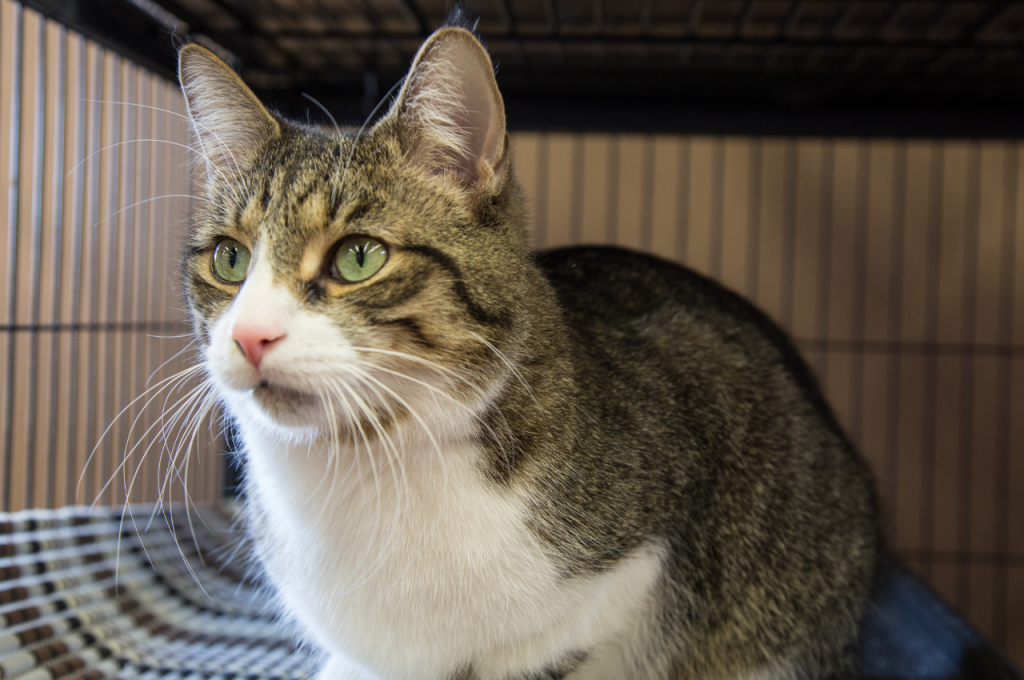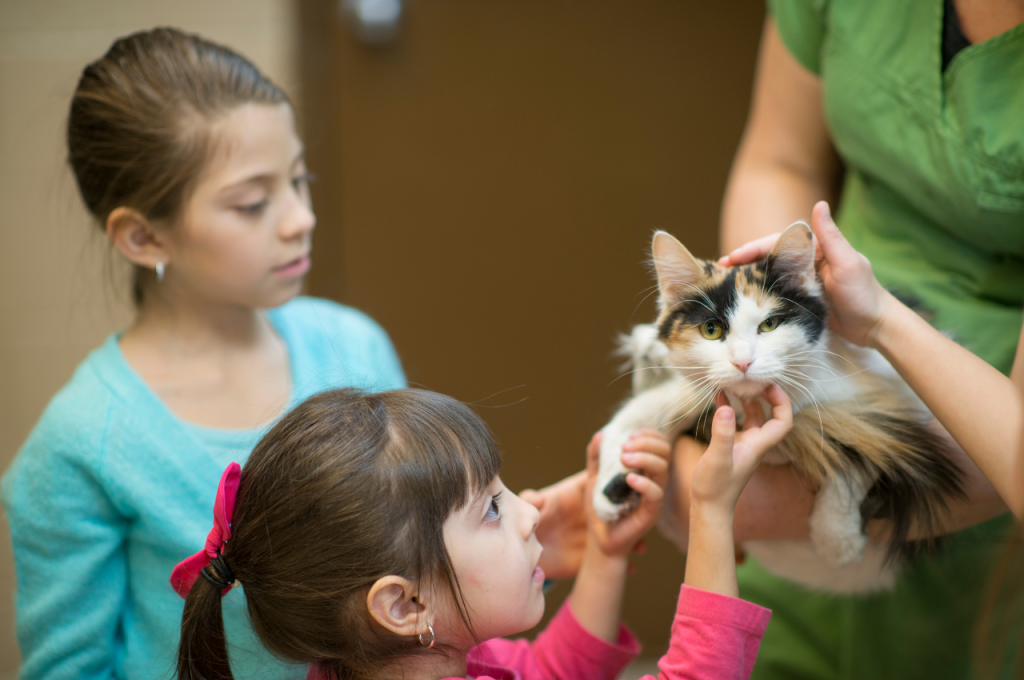The problems with adopting cats include allergies and the need for regular care and attention. Adopting a cat comes with its fair share of challenges, such as the potential for allergies in individuals who are sensitive to cat dander.
Additionally, cats require daily care, including feeding, grooming, and litter box maintenance. They also need regular veterinary check-ups and vaccinations to ensure their health and well-being. However, these challenges can be overcome with proper preparation and commitment. By understanding and addressing these potential issues, individuals can create a loving and fulfilling relationship with their adopted feline companions.
Introduction to Cat Adoption
Cat adoption is a rewarding experience that provides a loving home to a feline in need. The process typically involves selecting a cat from a shelter or rescue organization, where you can meet various cats and find one that matches your lifestyle and preferences. Adoption may include an application, home visit, and adoption fee, which often covers initial medical care and spaying or neutering. This process not only helps reduce the number of homeless animals but also allows you to offer a cat a second chance at a happy life. By adopting, you’re making a positive impact on a cat’s life and gaining a loyal companion.

Why Cats Make Wonderful Pets
Cats are affectionate, low-maintenance, and independent companions. They provide comfort and joy to their owners and are known for their playful and curious nature. With their calming presence, they help reduce stress and anxiety.
Initial Considerations Before Adoption
Before adopting a cat, it’s important to consider factors such as your lifestyle, living space, and financial ability to provide proper care. Understanding the commitment and responsibilities associated with cat ownership is crucial to ensuring a successful and fulfilling adoption experience.
Health Concerns in Rescued Cats
When adopting a rescued cat, it’s important to consider the potential health concerns they may have. Rescued cats often come from unknown backgrounds and may have underlying health issues that require attention. Understanding the common illnesses and the significance of vaccination can help prospective cat owners make informed decisions about adopting a rescued feline friend.
Common Illnesses
Rescued cats may be susceptible to a range of common illnesses, including respiratory infections, parasitic infestations, and dental problems. These conditions can stem from exposure to unsanitary living conditions or neglect. It’s essential for new cat owners to be aware of these potential health issues and take proactive measures to address them.
The Importance of Vaccination
Vaccination plays a crucial role in safeguarding the health of rescued cats. Core vaccinations, such as those for rabies and feline distemper, are essential for protecting cats from serious diseases. By ensuring that rescued cats receive necessary vaccinations, owners can significantly reduce the risk of preventable illnesses and contribute to their pet’s overall well-being.
Behavioral Issues and Their Management
When adopting a cat, it’s important to be aware of the potential behavioral issues that may arise. Understanding these challenges and how to manage them can help create a positive and harmonious environment for both you and your new feline companion.
Adjustment Period Challenges
Cats require time to acclimate to their new surroundings. During the initial adjustment period, they may exhibit behaviors such as hiding, nervousness, or excessive vocalization. It’s crucial to provide a quiet, safe space for the cat to retreat to and gradually introduce them to the rest of the home. Patience and gentle encouragement can help them feel more secure in their new environment.
Dealing with Aggression
Aggression in cats can stem from various factors such as fear, territoriality, or redirected aggression. Recognizing the triggers and providing outlets for play and exercise can help mitigate aggressive behaviors. Additionally, seeking guidance from a professional behaviorist or veterinarian can offer valuable insights and strategies for managing aggression in cats.
The Financial Aspect of Cat Ownership
Cat ownership can bring financial challenges, such as unexpected vet bills and ongoing expenses for food and supplies. These costs can add up quickly, so it’s crucial to budget and plan carefully before adopting a cat.

Cats are adorable creatures, but they come with a cost. The financial aspect of owning a cat is a crucial factor to consider before you decide to adopt a cat. In this section, we will discuss the initial costs and ongoing expenses of owning a cat, so you can make an informed decision.
Initial Costs
When you decide to adopt a cat, you will have to bear some initial costs. These costs can vary based on the type of cat you choose and the supplies you buy. Here are some of the expenses you should expect:
- Adoption fees: The cost of adopting a cat can range from $50 to $200, depending on the shelter or rescue you choose.
- Supplies: You will need to buy food and water bowls, a litter box, litter, scratching posts, toys, and a carrier. These supplies can cost anywhere from $100 to $300.
- Veterinary expenses: You will need to take your cat to the vet for vaccinations, spaying/neutering, and a check-up. These expenses can cost up to $500.
Ongoing Expenses
Owning a cat is not a one-time expense. You will have to bear ongoing expenses to ensure that your cat is healthy and happy. Here are some of the ongoing expenses you should expect:
- Food: You will need to buy high-quality cat food, which can cost around $20 to $50 per month.
- Litter: You will need to buy litter on a regular basis, which can cost around $10 to $20 per month.
- Medical expenses: Your cat may require medical attention from time to time, which can cost anywhere from $50 to $500 per visit.
- Insurance: You may want to consider getting pet insurance, which can cost around $20 to $40 per month.
In conclusion, owning a cat can be a rewarding experience, but it comes with a financial cost. Before you adopt a cat, make sure you can afford the initial costs and ongoing expenses. By being prepared, you can provide your cat with a happy and healthy life.
Legal and Ethical Considerations
When considering adopting a cat, it’s crucial to be aware of legal and ethical considerations. Some problems with adopting cats include ensuring that the adoption agency follows humane practices and that the cat’s health history is accurately disclosed. Additionally, potential adopters should consider their ability to provide proper care and commit to the cat’s lifetime needs. Understanding local regulations on pet ownership and ensuring that adoption agreements align with ethical standards helps promote responsible pet ownership and contributes to the overall well-being of the adopted cat.
Adoption Laws
Cat adoption laws establish guidelines for the process of adopting a cat, aiming to ensure that animals are placed in suitable homes. These laws typically require potential adopters to meet specific criteria, such as providing a safe and appropriate living environment, demonstrating the ability to care for the cat, and sometimes undergoing a home inspection. Adoption agencies are mandated to disclose the cat’s medical history and behavioral information to prospective adopters. Additionally, some laws include post-adoption checks to monitor the well-being of the cat. By following these regulations, adoption organizations and adopters help promote responsible pet ownership and improve the welfare of adopted cats.
Moral Responsibility Towards Pets
Adopting a cat comes with significant moral responsibility. It’s crucial to understand the potential problems associated with cat adoption, such as ensuring the cat’s well-being, addressing behavioral issues, and committing to long-term care. Adoptive pet owners must provide a safe, loving environment, meet medical needs, and address any adjustment challenges. Ethical adoption involves making an informed decision, recognizing the commitment required, and understanding that each cat has unique needs. By accepting this responsibility, adopters contribute to the welfare of cats and promote humane treatment throughout their lives.
The Commitment to Long-term Care
Adopting cats may present challenges such as behavioral issues, health concerns, and adjustment periods. Providing long-term care requires commitment to addressing these problems effectively for a happy and fulfilling feline-human relationship.
Understanding The Lifespan of Cats
Cats are wonderful pets that bring joy and companionship to our lives. However, before adopting a cat, it is important to understand their lifespan. On average, cats can live up to 15 years or even longer, depending on their breed and overall health. This means that adopting a cat is a long-term commitment and requires careful consideration.
Preparing for Senior Cat Care
As cats age, they may require extra care and attention. It is important to prepare for their senior years by providing them with proper nutrition, regular veterinary check-ups, and a comfortable living environment. Senior cats may also require special accommodations, such as litter boxes with low sides and easy-to-access food and water bowls. By preparing for senior cat care, you can ensure that your cat remains healthy and happy throughout their life. When adopting a cat, it is important to understand the commitment to long-term care.
By understanding the lifespan of cats and preparing for senior cat care, you can provide your furry companion with a happy and healthy life.
Adoption Success Stories
Adopting cats can come with some challenges such as behavioral issues, health problems and adjustment period. However, there are many adoption success stories of cats that have overcome these problems and become beloved family pets.
Adoption success stories are the most heartwarming and inspiring tales for cat lovers. The transformative impact of adopting a cat can be seen in the joy and love they bring to their new forever home. Building a forever home for a cat is a significant responsibility, and it requires commitment and patience. In this section, we will take a closer look at the transformative impact of adoption and the importance of building a forever home for your feline friend.
Transformative Impact of Adoption
Adopting a cat can have a transformative impact on both the cat and the owner. Cats are known for their ability to provide companionship, reduce stress, and even lower blood pressure. When you adopt a cat, you are not only giving them a second chance at life, but you are also improving your own quality of life. The bond that forms between a cat and their owner is unique and special, and it can have a profound impact on both parties.
Building a Forever Home
Building a forever home for your cat is essential to their well-being and happiness. Cats are territorial animals, and they require a space that they can call their own. When you bring a cat into your home, you must provide them with a safe and comfortable environment. This includes providing them with a litter box, scratching post, and toys to play with. You must also ensure that your home is cat-proofed, so they do not get into any dangerous situations.

In conclusion, adoption success stories are a testament to the transformative impact of adopting a cat. Building a forever home for your feline friend is a significant responsibility, but the love and joy they bring to your life are priceless. If you are considering adopting a cat, remember that you are not only changing their life, but they are also changing yours.
Frequently Asked Questions
Here are some commonly asked questions about what are the problems with adopting Cats:
What are Common Health Issues in Adopted Cats?
When adopting a cat, common health issues to watch for include upper respiratory infections, dental problems, and parasites. Regular vet check-ups and proper care can help prevent and treat these issues effectively.
How to Help a Newly Adopted Cat Adjust?
To help a newly adopted cat adjust, create a quiet space, introduce slowly to other pets, provide a consistent routine, offer plenty of hiding spots, and give them time to explore at their own pace. Patience and understanding are key to helping them feel comfortable in their new environment.
Is it Normal for Adopted Cats to be Shy at First?
Yes, it is normal for adopted cats to be shy at first due to the stress of a new environment. With patience, love, and gentle encouragement, most cats will gradually come out of their shell and become more confident over time.
Should i Adopt a Kitten or an Adult Cat?
Both kittens and adult cats make wonderful companions, but adult cats are often less demanding and already have established personalities. Consider your lifestyle and preferences when deciding between a kitten or an adult cat for adoption.
Conclusion
Adopting a cat can bring immense joy and companionship to your life. However, it’s important to be aware of the potential problems that may arise. From allergies and shedding to litter box issues and behavioral challenges, these challenges can be overcome with proper understanding, patience, and care.
By being prepared and taking the necessary steps to address these problems, you can create a loving and harmonious environment for both you and your feline friend. Remember, every cat is unique, and with the right approach, the rewards of cat adoption far outweigh the challenges.
